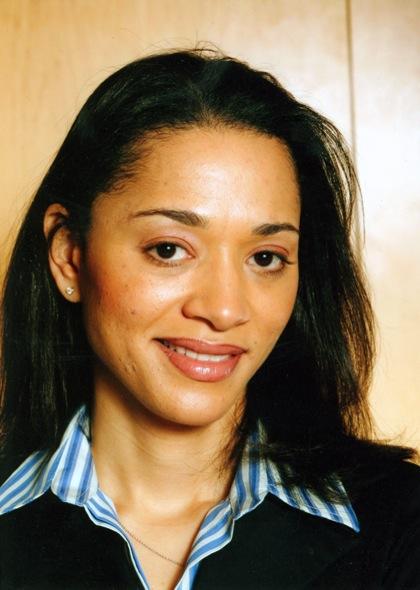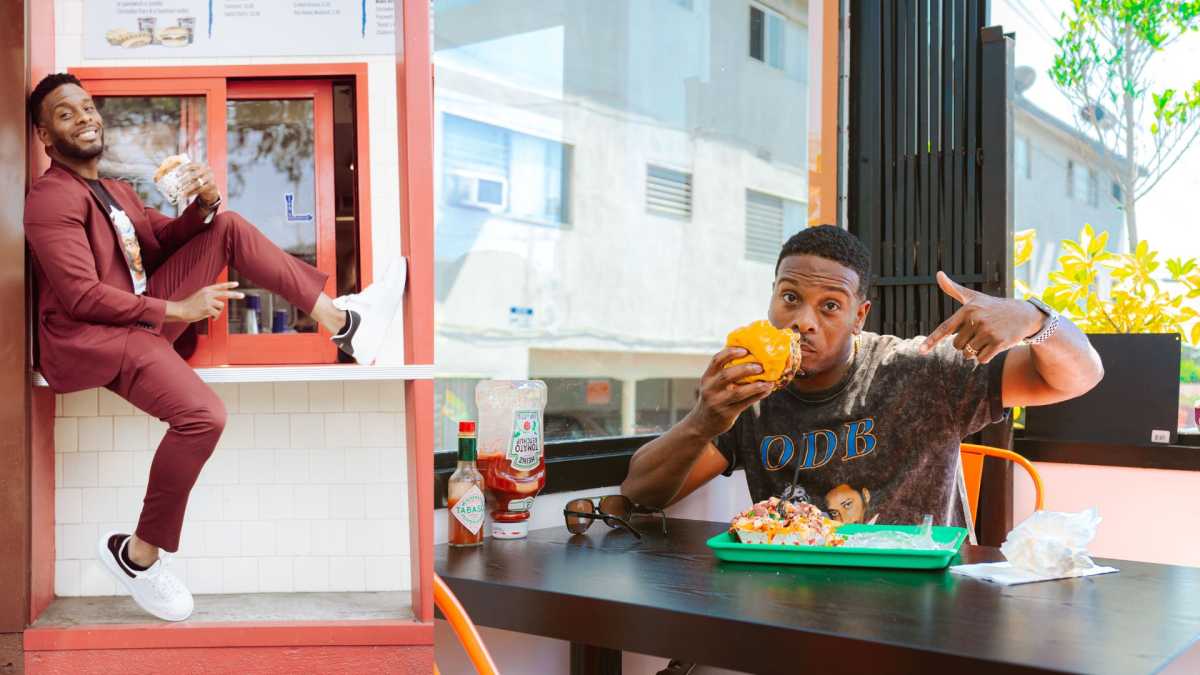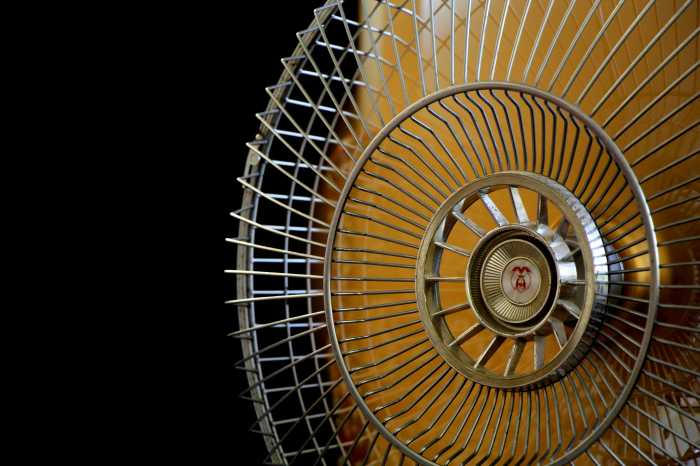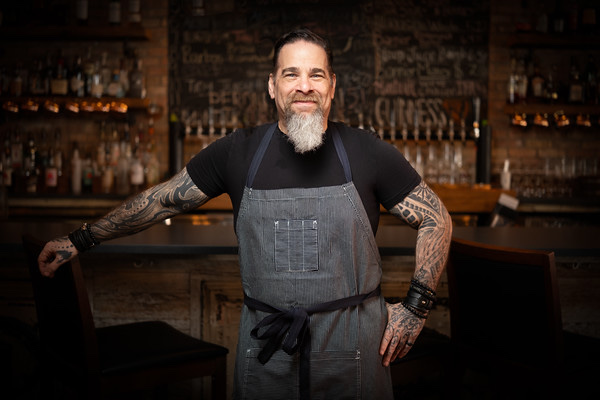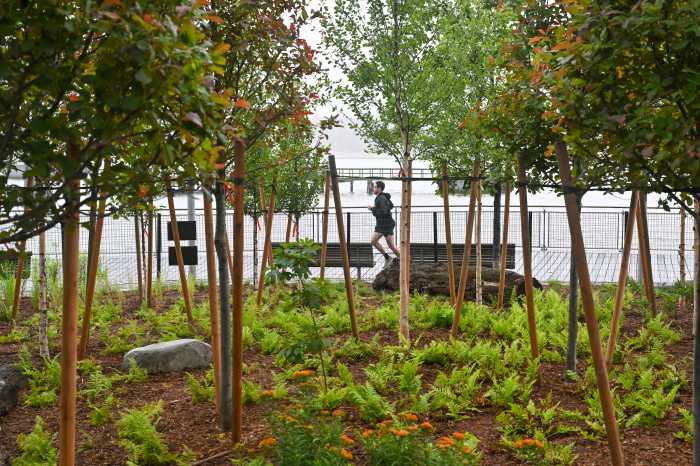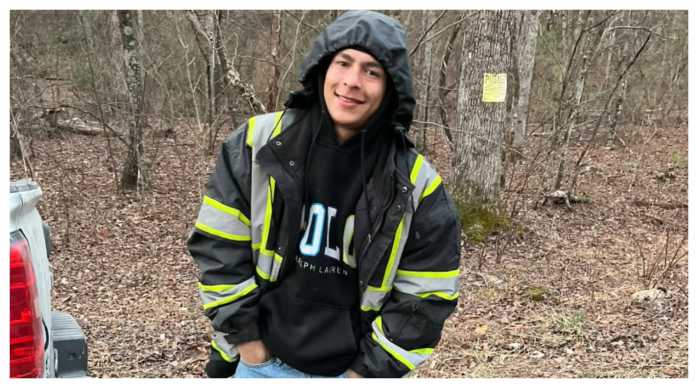Some call it an axiom. Others call it a rule. But it’s something that Jennifer Jones Austin has lived her life by: when your going through life, don’t avoid the bumps — ride over them.
That adage has even more meaning to Austin now that the 41-year-old attorney who has dedicated her life to the city’s disadvantaged citizens was diagnosed with acute myeloid leukemia this past September.
Doctors gave her only a few months to live unless she receives a bone marrow transplant — a seemingly insurmountable task that this minister’s daughter is ready to meet head on.
“It’s a journey,” the Murrow High School alumna said speaking from her Lefferts Manor home Tuesday. “But it’s a good journey because of all the support we’re getting from friends and friends of friends, family and the community at large. It’s difficult but its kind of comforting. I get a lot of joy on a daily basis when I see how people are trying to support me.”
A healthy share of support is coming from the “Be The Match Registry” drives held throughout the city and beyond, where a simple cheek swab can determine if you could help Austin in her time of need.
The next identification drive is scheduled to be held at Bethany Baptist Church, where Austin’s father preached from the pulpit for 43 years, at 408 Marcus Garvey Boulevard in Bedford Stuyvesant on December 20 from 9 a.m to 3 p.m.
Once thought to be a painfully invasive process, bone marrow transplants have become quite safe and painless over the years.
The most common process used, the peripheral blood stem cell (PBSC) donation, is a non-surgical out-patient procedure where the donor gives blood from an arm. But instead of losing the blood, a machine separates the blood-forming cells and returns the blood to the donor through the other arm.
Yet Austin’s case is unique.
“Jennifer is African-American and the chance of finding a match from African-American donors is 1 in 20,000, while the chance of finding a match from outside of her race is 1 in 1,000,000,” said Jamie D. Mitchell-Bowen, a friend whose children attend the same school as Austin’s 12-year-old and 8-year-old.
“The Be The Match Registry is in great need of registered donors of African-American descent because while the Caucasian population has a more than 92 percent chance of finding a match in the registry, Jen and other members of minority groups have significantly less than half of that chance of finding a match in the current pool of donors.
Recent statistics show that there are more than 5 million Caucasian registrants in bone marrow donor databases. There are only about 500,000 registrants of African descent.
But despite the disparity, Austin is hopeful that she can ride over this bump in the road.
Bolstered by her and her family’s profound faith, Austin, who has been hospitalized repeatedly and has already undergone two chemotherapy treatments, is looking forward to a cancer free future.
She already knows what she’s going to do when the doctor’s give her the all clear.
“I hope God gives me a few years because I plan to try my best to say thank you to the thousands of people who have come out to help me,” she said.
But if a leukemia-free future is not in the cards?
“I have a lot of faith,” she said. “This is no mistake. This is my journey…my test and everything will turn out just as it should. God brings you to this Earth to do a certain task and only he knows when its completed. Then he calls you home.”
Be The Match Registry drives are held at houses of worship, residential homes, community centers and other locations throughout the city, as well as far away as Maryland and Ohio.
To learn more about the Be The Match Registry log onto www.icla.org.
Online registration is another way for people to get tested.People may register online by going to http://join.marrow.org/JJA1068 and using the promo code JJA1068.
Participants will receive an at-home testing kit without charge, and have the option of making a monetary donation.
The kit contains everything one needs to retrieve a testing sample at home. Once the sample test is completed, it should be returned to the registry in an enclosed stamped envelope for testing.


